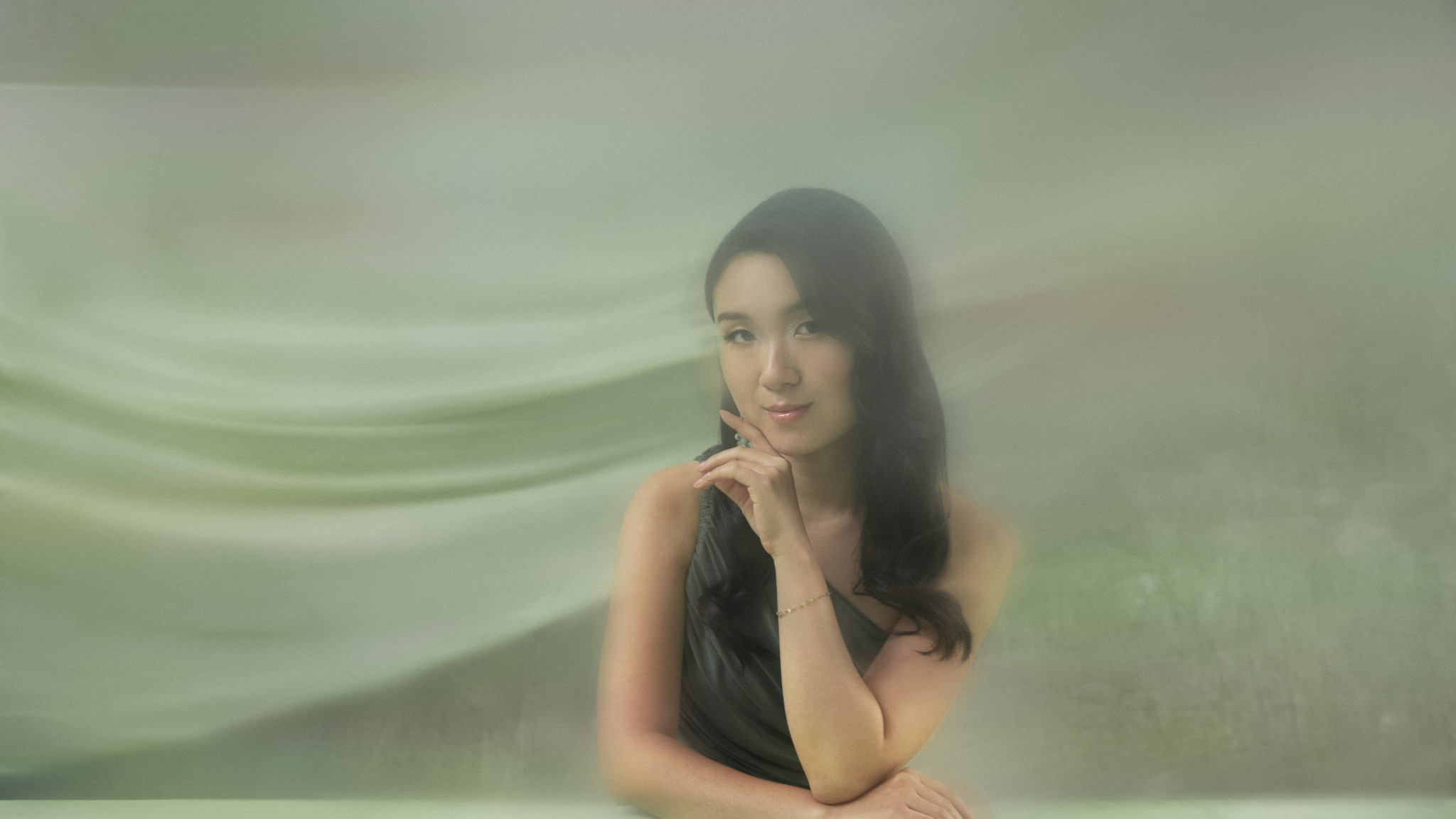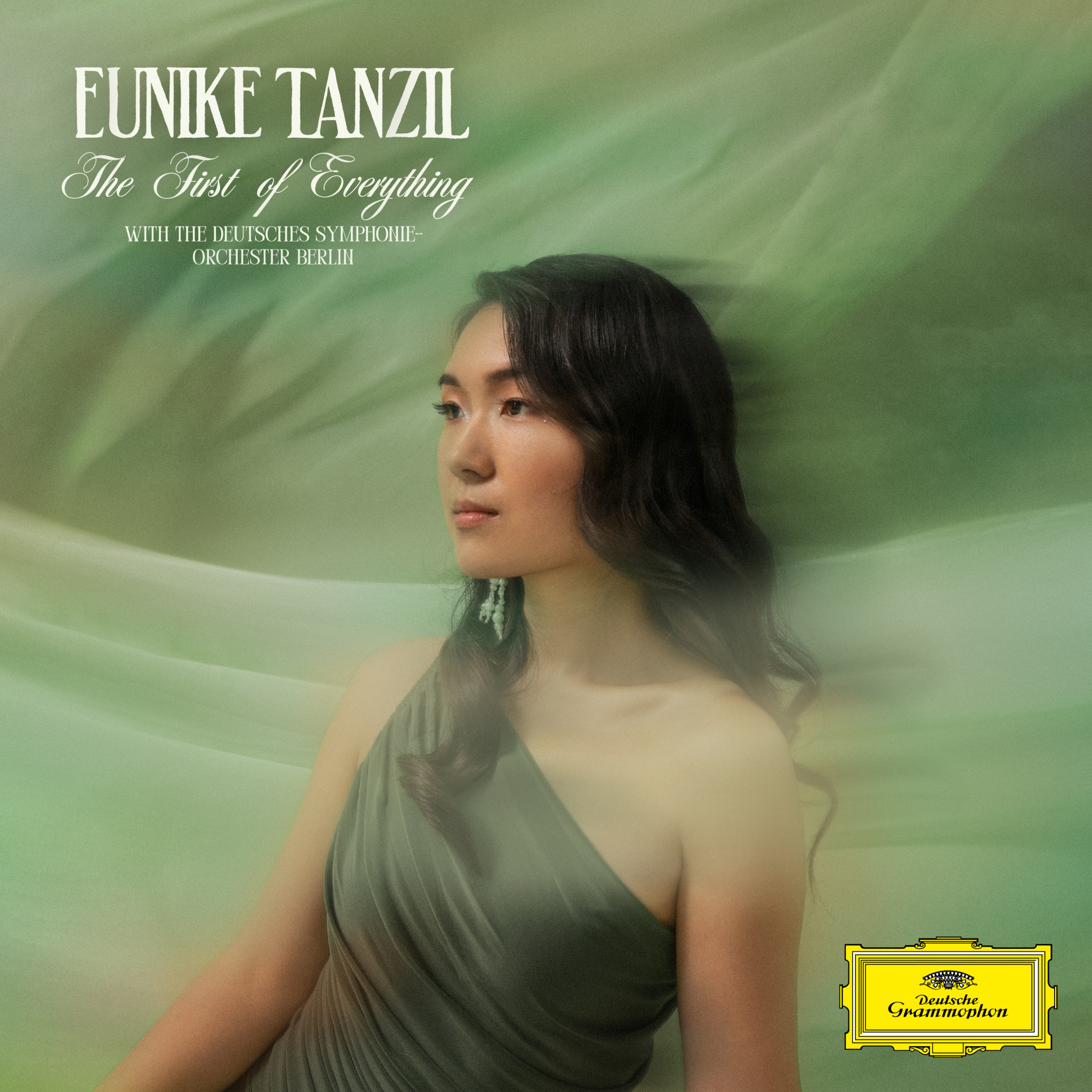“It was film music that made me want to be a composer,” enthuses Eunike Tanzil during a Zoom call from her home in L.A. “As a kid growing up in Indonesia, where there were no orchestras, it was my first exposure to orchestral music—and I loved how it made me feel. In particular, I loved the melodies from movies like E.T., How To Train Your Dragon and Jaws. It all just felt so big and emotional, and like I was in the movie along with the characters. That was how I developed a love of melodies and discovered the element of storytelling, both of which are still so important to me. But at the time I couldn’t connect with anyone about it all as everyone was listening to Justin Bieber.”
Eunike was born in 1998 in Medan, North Sumatra, but her life wasn’t entirely devoid of classical music; her father owned a piano shop and she grew up practicing daily along with her brother. “I didn’t, and still don’t see myself as a professional pianist,” she states. “But I do remember one time when I was supposed to practise Chopin and I took the first couple of bars and made my own variation. I didn’t know then that I was improvising, but because my mother isn’t a musician and doesn’t read music, she didn’t realise and I got away with it. It was then that I realised playing and composing could be fun, especially when it was all just by ear and instinct.”
By the time Eunike was 16 she had applied for, and won, a scholarship to study at the prestigious Berklee College of Music, where she finally experienced a live orchestra. She then won another scholarship for the Juilliard School, where she studied under the guidance of Oscar-winning composer John Corigliano. Since then, her rise has been, well, meteoric. She has worked with an impressive array of artists and musicians, including Chinese-Icelandic singer Laufey, TwoSet Violin, Sophie Kauer, Arturo Sandoval, Ray Chen, Jhett Tolentino and Feby Putri, has scored and worked on a number of films (The Addams Family 2, I Wanna Dance With Somebody, the American romantic comedy Asian Persuasion), and her music has been performed by the very first orchestra she heard—the Boston Symphony Orchestra—along with many others.
Along the way she has experimented with an array of styles, using traditional Indonesian gamelan music in her string quartet “Three Balinese Dances”, and jazzy harmonies for “Winter Matcha,” created for clarinet and piano. “To me, composing is composing,” she smiles. “Just like when you are cooking, you are cooking—whether it’s Thai food or pasta. I don’t like to box myself into a specific style because I might be good at things I haven’t tried yet. So I try to stay open to things that pop up, especially if they’re new and might challenge me, whether that’s a game soundtrack for example, or co-composing with a pop artist.”
A big part of Eunike’s rise to international recognition has been not only her open-mindedness but also her talent for playfulness and cultivating a huge fanbase on social media. It was her “Hum Me A Melody” project on Instagram that first drew the attention of Deutsche Grammophon’s Vice President A&R New Repertoire, for example, whereby she invited strangers on the street to hum a simple melody, which she then reworked into epic symphonic arrangements in her studio.
“I started that project when I moved to L.A. in 2023,” reveals Eunike. “I wanted to find work composing for films but there was a writers’ strike and I didn’t want to just sit around and wait for it to be over, especially as these things can take years. My initial aim was to see if I could connect with directors or people looking for composers by posting videos that showcased my skills. The last thing I wanted to be was an influencer; hearing my own voice on camera is gross! It was always about music and my work rather than me, though of course it all got much bigger than I planned. I am extremely grateful for that, but I am also wary of becoming known as some kind of novelty ‘tiktok composer’. My debut album is part of a shift away from that, in fact, and a much more serious musical statement.”
The album in question, The First of Everything, was recorded live with the Deutsches Symphonie-Orchester Berlin, features Eunike on solo piano and Sophie Kauer (of Tár fame) on cello, and is due to be released this September. The first single, “REMEMBERING,” was released in June, with another release planned for July. The album title, as well as the debut single, underlines the project’s personal character for Eunike.
“I see it as the soundtrack to my life,” she says. “Each track has a story behind it. For instance, “REMEMBERING” was a reaction to losing my grandmother ten years ago, and is the only older song on the album. The next single, “PINK SAKURA” is based on my reaction to seeing cherry blossoms for the first time in Boston. I had always seen them in Japanese anime and wondered if they were actually pink. In fact the concept and title of the album came after I had written many of the songs; Initially I had no idea what to write and it felt like a lot of pressure because an album has to hang together, and especially a debut since people will be really hearing what you can do for the first time. If film music sucks you can blame the movie. but with your own album there’s nowhere to hide. It felt very vulnerable at first…”
There was, of course, no need to worry: the album is as dazzling and diverse as Eunike’s previous work has led us to expect—even more so, since it’s a grander and more expressive statement, sweeping proudly and effortlessly from soothing, reflective pieces to maximalist orchestral statements that her idol John Williams would surely be proud of. In fact, the final, dramatic composition, “GENESIS”, is a homage to Williams—in particular the Jaws theme that influenced Eunike so much as a child. “I always loved John Williams so much that my dad bought me his 80th birthday album when I was 13 or something,” she laughs.
Does Eunike see herself as an ambassador for classical music? “Actually, I really love what people like TwoSet Violin are doing. I think they are the biggest advocates of making classic music in general more accessible. I suppose I see myself more as an advocate for orchestral music. People don’t really listen to symphonies and associate them with just a couple of names, usually Hans Zimmer or John Williams. But orchestras can tell stories and make you feel emotions, and I want to make sure this kind of music, whatever people want to call it, keeps making its way to my followers and modern audiences.”
'The First of Everything' is out now and available on CD, LP and digitally. Listen & order here.


